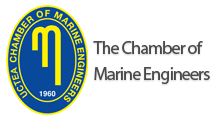

JEMS apply the Creative Commons Attribution NonCommercial 4.0 International Licence to all manuscripts to be published
Usability of Human Error Assessment and Reduction Technique with a 4M framework (HEART4M) A Case Study on Ship Grounding Accidents
Ludfi Pratiwi Bowo, Masao FurushoGraduate School Of Maritime Sciences, Kobe University, Kobe, JapanHuman error plays a vital role in causing maritime accidents. This paper presents the analysis of human factors in 52 grounding accident reports of ships greater than 10,000 GT retrieved from 11 national investigation boards. In this study, the categorization of error-producing conditions (EPCs) from the Human Error Assessment and Reduction Technique (HEART) methodology to 4M (Man, Machine, Media, and Management) framework, EPC4M was carried out. This study aims to categorize the EPCs to the 4M framework to better explain these other factors that relate to human factors. There were 18 EPCs in man factors, 3 EPCs in machine factors, 1 EPC in media factors, and 16 EPCs in management factors. Three types of generic tasks were obtained in this grounding analysis, and 259 relevance EPC4M were acquired. EPCs related to management factors were the primary causes of such accidents. The average human error probability for these cases was around 55%.
Keywords: EPC 4M, HEART methodology, 4M framework, Grounding, Human errorCorresponding Author: Ludfi Pratiwi Bowo, Japan
Manuscript Language: English
(753 downloaded)









